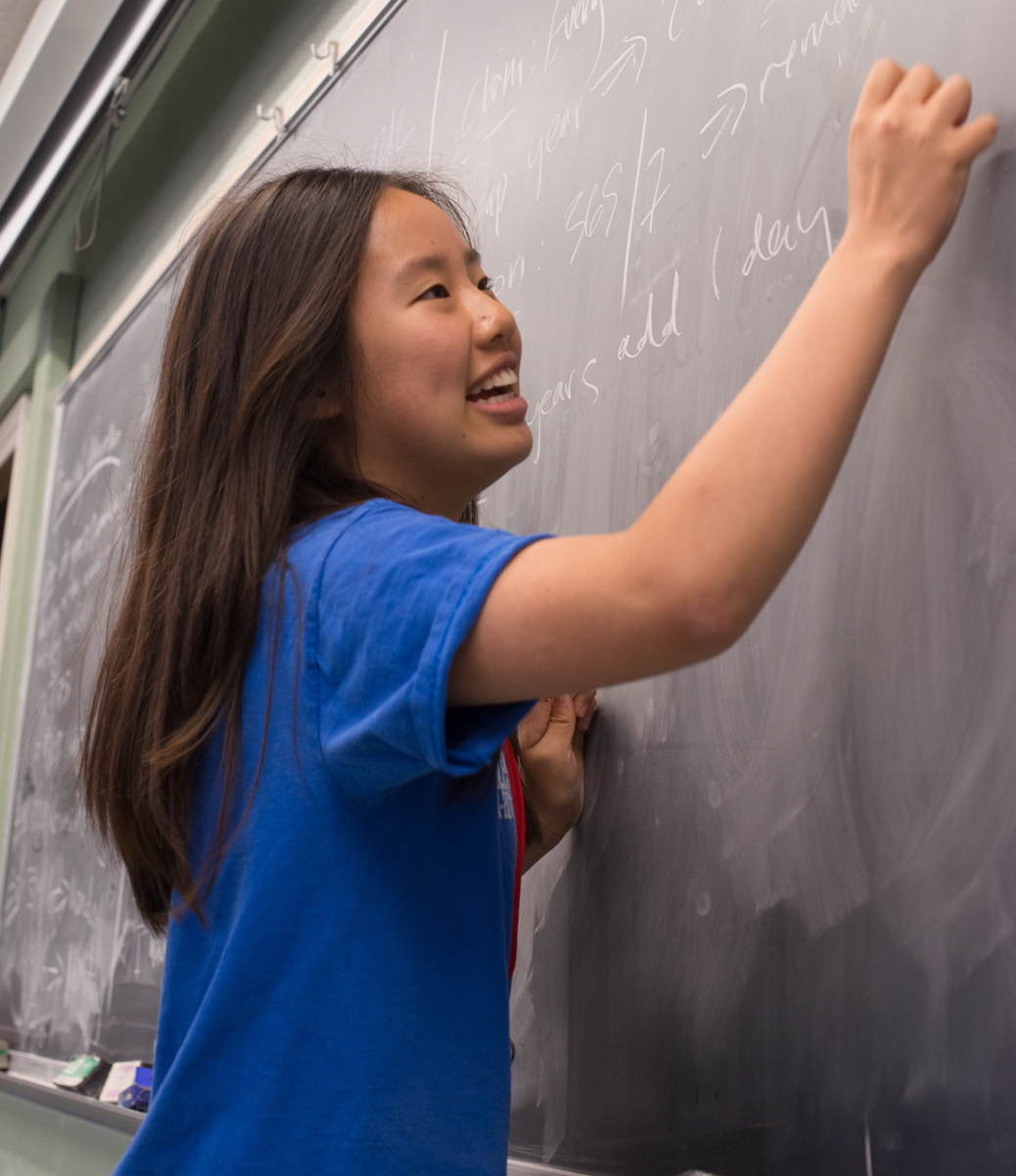Projects
What is a Project? When you take on a project at Mathcamp, you're embarking on a chance to learn a topic in great depth. Your project might be to dive into one branch of mathematics, or it might be to create a computer program to simulate some interesting phenomenon, or it might be an original research problem. Whatever you end up doing, you'll walk away with a much deeper understanding of the material.

Not everyone does a project at camp; there are lots of great ways to interact with staff at camp mathematically, and often students prefer to focus on, say, an ongoing class. But many students report after camp that their project was one of the most rewarding things they did, and projects are open to every student who's interested.
Choosing a Project: Projects at Mathcamp come up in lots of different ways. Sometimes, a student will propose a project to a staff member and they'll start on it right away. Sometimes, a class will naturally lead into a more in-depth project. In addition, early in camp, all of the staff will post descriptions of projects they'd like to run. Then we invite the students to come and talk to the advisors, find out about each of the projects, and decide what they want to do. After the Project Fair, we make a matching assignment of interested students to project. Over the next 4 weeks, individuals and small groups will pursue these topics with the guidance of their advisors.
Work Closely with Mathcamp Faculty: When you take on a project, a Mathcamp staff member will act as your supervisor. How closely you work with that staff member is up to you, but typically you'll meet and discuss the mathematics, show off your partial results, and get guidance and suggestions whenever you need it.
Demonstrate Your Results in the Project Fair! At the end of camp, many people who did projects present their work. This will usually be at a poster session; someone from each project will be around to discuss the work, run the computer program, or do a demonstration. Just about all of camp goes to see all the cool things that have been done over the past few weeks!
Some examples of projects from previous years:
- Billiard-ball geometry
- Information theory and psychology
- Periodicity of Fibonacci numbers mod n
- Knight tours on an m-by-n chessboard
- Non-convex polyhedra
- Cellular automata
- Cops and robbers on a graph
- Constructing the regular 17-gon
- Admissible covers of algebraic curves
- Mathematical Finance
- Algorithmic composition of music
- Intelligent ways of searching the web
- Probability in sports
- The elasticity equation of string
- Digital signal processing
- Light paths in universes with alternate physics
Students can continue to work on their projects outside of Mathcamp, and some projects go a long way! Several Mathcamp projects have resulted in staff and students publishing joint research:
- Möbius Polynomials of Face Posets of Convex Polytopes, coauthored by Meena Jagadeesan (student) and Susan Durst (staff), published in the journal Communications in Algebra
- Harmonic algebraic curves and noncrossing partitions, coauthored by Jeremy Martin (staff), David Savitt (staff), and Ted Singer (student), published in the Journal of Discrete and Computational Geometry
Projects have also led to honors in competitions like Davidson Fellows, ISEF (and, historically, Siemens). Of course, we're always excited for students whose work is recognized! If you're thinking about doing a project, though, don't feel pressured to pick an original research topic: like everything at Mathcamp, learning is the goal.





